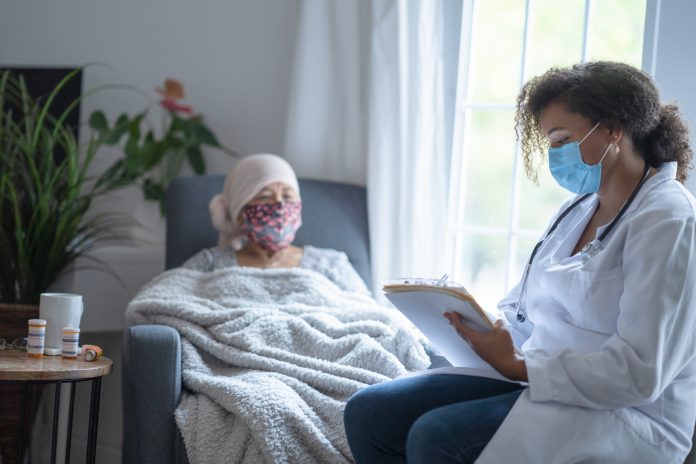
Just after the new year, the National Comprehensive Cancer Network (NCCN) published a powerful new set of recommendations for cancer patients relating to both COVID-19 vaccination and prophylactic measure for patients who haven’t been exposed to the SARS-CoV-2 virus.
The NCCN’s Advisory Committee on COVID-19 Vaccination and Pre-exposure Prophylaxis has met regularly throughout the pandemic to provide oncologists and cancer care teams with evidence-based best practices for their patients. Of note in the recently released updated guidance, was information on the use of a human monoclonal antibody treatment regimen as a preventive measure against contracting COVID-19.
“The biggest change is the inclusion of tixagevimab plus cilgavimab for the pre-exposure prophylaxis of COVID-19 in adults and pediatric individuals (12 years of age and older weighing at least 40 kg) who have moderate to severe immune compromise and may not mount an adequate immune response to COVID-19 vaccination,” Brahm Segal, M.D., Roswell Park Comprehensive Cancer Center, and co-Leader of the NCCN Advisory Committee on COVID-19 Vaccination and Pre-exposure Prophylaxis told Inside Precision Medicine.
The combination antibody therapy is from drug maker AstraZeneca. The two long-acting antibodies are designed to bind to specific sites on the SARS-CoV-2 spike protein and could provide as much as one year of protection, the company noted in its October application to the FDA for an Emergency Use Authorization (EUA). The FDA granted the EUA in early December.
For the NCCN guidance on the use of this combination therapy, the advisory committee recommends that priority be given to patients with hematologic malignancies ahead of patients with solid tumors, if there is a limited supply of the drugs. Such priority includes hematopoietic cell transplantation (HCT) and patients on engineered cellular therapy “as they are more likely to have inadequate responses to COVID-19 vaccination and are at highest risk of major COVID-19 complications,” the committee noted.
In addition to the prophylactic antibody treatment, the NCCN also outlined an array of principles regarding COVID-19 vaccines for cancer patients. These include:
- Cancer patients should get fully immunized, including any recommended third doses or any approved boosters, with a strong preference for mRNA vaccines
- Delaying vaccination for at least 3 months following HCT or engineered cellular therapy (e.g. chimeric antigen receptor [CAR] T-cells) to maximize vaccine efficacy. Vaccine delays in patients with cancer should also include those recommended for the general public such as recent exposure to COVID-19, or recent monoclonal antibody therapy
- Full vaccination is also recommended for caregivers, household/close contacts, and the general public
- The committee also strongly supports full vaccination mandates for healthcare workers.
“Other updates include adjusting age and dose for Pfizer (vaccine) based on the current FDA EUA, and recommending a repeat series for previously-vaccinated stem cell transplant and cellular therapy recipients, based on potential loss of vaccine-induced immunity as a result of those treatments,” the advisory committee noted.
NCCN Clinical Practice Guidelines in Oncology are the standard for clinical direction and policy in cancer care. Since the beginning of the pandemic, NCCN has been disseminating evidence-based expert consensus on managing patients with cancer. It published its first guidelines for cancer patient care amid the COVID-19 pandemic in January, 2021 and has updated the guidance numerous time since then as more evidence has emerged.
The NCCN COVID-19 resource page has provided peer-reviewed research, expert-led webinars, and revised guidance that is updated frequently and has been downloaded more than 17,000 times over the past year.













